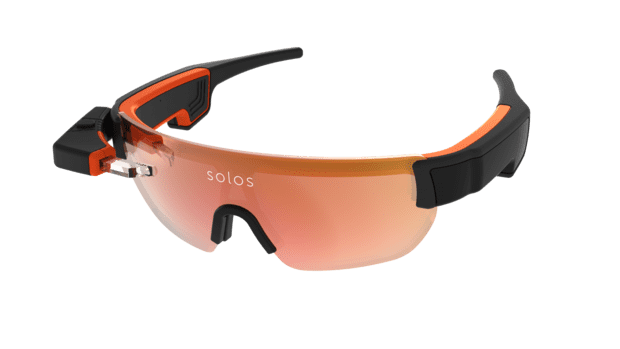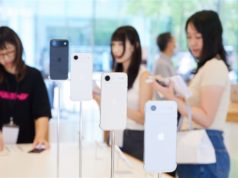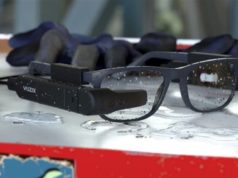The 2016 Rio Olympics is finally getting underway, and there’ll be no shortage of tech at this year’s event. Athletes use all kinds of gadgets to help them train and stay fit, from heads-up displays used by cyclists to jump trackers worn by the volleyball team. Here are a few of the gadgets that have made it to Rio. You may see U.S. cyclists wearing Solos smart glasses, a kind of Google Glass for athletes. The glasses have a tiny heads-up display that shows metrics like heart rate, pace, distance, and cadence. The data appears in real-time so cyclists know if they are moving at their projected pace. The glasses have built-in headphones and can run for around six hours before their next charge. Athletes with the U.S. gymnastics team will be using LumiWave’s Infrared Light Therapy device to treat minor muscle and joint pain. Each of its eight “pods” beams infrared light into body tissue, which helps increase blood flow and provide short-term pain relief. The device has been cleared by the U.S. Food and Drug Administration “for temporary relief of minor muscle pain and spasms and minor joint pain and stiffness.” While gymnasts have access to it now, the device is on pre-order to the general public starting at $449. If you see the jacket of Team USA’s flag bearer light up at the opening ceremony, don’t be alarmed, it’s not a Hunger Games moment. Ralph Lauren added some “electroluminescent panels” that will “light the way for Team USA athletes,” presumably so they don’t get lost on their way back to the Olympic Village. It could double as disco-wear for those post-games parties. Wearables provide analytics data to help athletes train. The U.S. women’s volleyball team will use the Vert Wearable Jump Monitor, which clips onto clothing to track how high, how far and how often each player jumps. The data is sent to an app to help coaches ensure athletes don’t over-exert themselves, which can lead to injury. It can also be used for basketball and other sports. You can buy your own for $125. Crime is a big concern at the Rio Olympics, with a couple of athletes already having been robbed and fears that iPhone theft will be rampant. Visa is providing a wearable payments ring to the athletes it’s sponsoring at the games, allowing them to make cashless payments. Tap the ring on a compatible payment terminal and you’re done. Visa is also linking pre-paid cards to payment bands and smartwatches like the Swatch Bellamy. If 2D doesn’t cut it for you, you can try watching some of the events through a VR headset. For Samsung Gear VR owners, NBC is providing 85 hours of delayed VR coverage that includes the opening and closing ceremonies, basketball, gymnastics, track and field, diving, boxing, and fencing. The content isn’t free — Gear VR owners can view the coverage via the NBC Sports app after signing in with a paid cable account. But the BBC is also providing some VR coverage through the BBC Sport 360, which will work with the Gear VR as well as lower-cost headsets for Android and iOS devices. It’s not clear yet if the BBC coverage will be available worldwide; its broadcasts are usually limited to U.K. audiences. The Zika virus has got some people alarmed about the games, so Kinsa, spying a marketing opportunity, is donating its Smart Stick thermometer for use by U.S. athletes. Temperatures are recorded in a mobile app, where other symptoms and health data can also be recorded. The app has a social networking feature so athletes can keep tabs on how their teammates in the Olympic Village are doing.






This article appears to continue on subsequent pages which we could not extract







